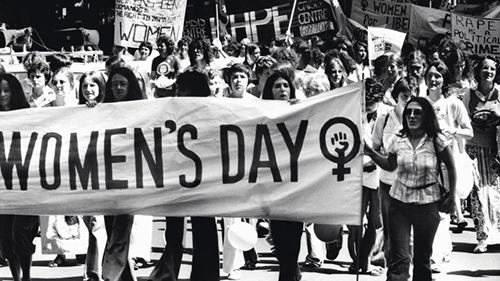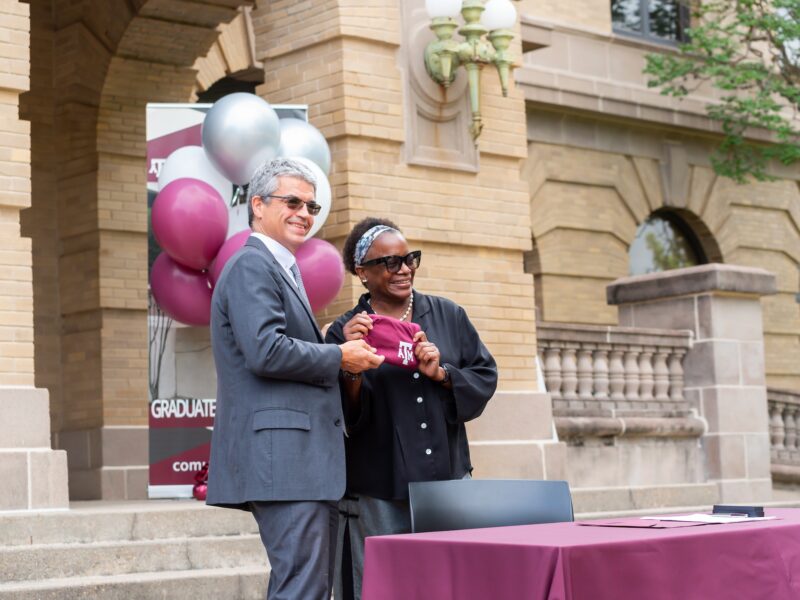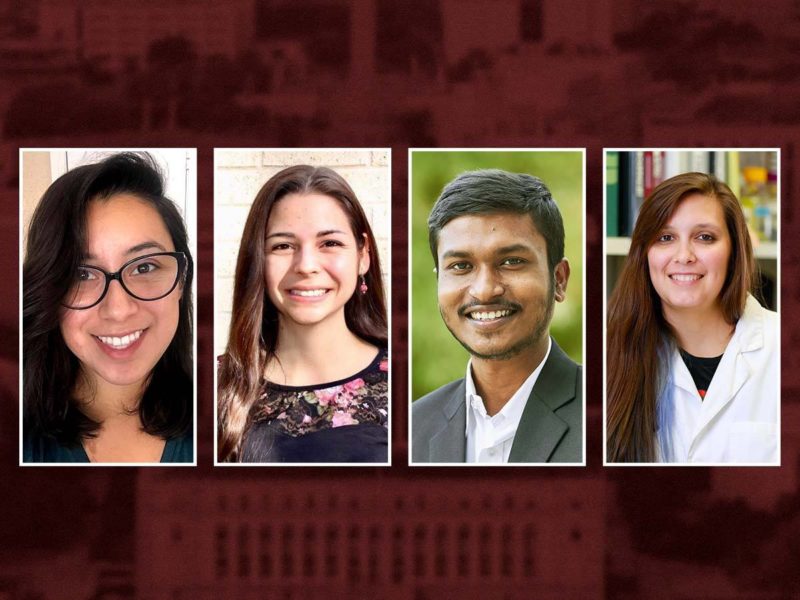In 1909, thousands of women took to the streets of New York City to demand better wages, equal rights, and shorter hours. In turn, International Women’s Day was born.
The United Nations began to celebrate International Women’s Day in 1975, which is an official holiday recognized across the globe.
This day would not have been celebrated in Aggieland a mere 50 years ago as women were not even allowed to enroll for classes. The culture of Texas A&M has shifted drastically over the decades–women now have a strong presence on a campus that was once a predominantly military, male-focused university.
Sara Alpern, U.S. women’s history and modern U.S. history professor at Texas A&M University for the past 40 years, shares insight into why celebrating International Women’s Day is so important.
“Every country and every sector celebrates or thinks about it in a different way,” she said. “It’s a time to take stock and really acknowledge the progress that has been made.”
Alpern came to Texas A&M in 1977 as one of the first historians on campus to focus on women. Today, Liberal Arts currently houses the Women’s & Gender Studies Program, which would not be possible without the dedication of women like Alpern.
“Be the best historian you can be, because your gender really isn’t a barrier anymore,” Alpern said. “If you believe in it, it will happen. Believe in your strength and your intellect and your passion.”
The college continues to make strides towards overcoming gender inequality, from the leadership to the student body.
Not only is the dean of the college female, five of the 12 departments are headed by women: anthropology, English, Hispanic studies, performance studies, and psychology. In addition, 59% of the college is made up of female students.
“We’re full of women leaders in Liberal Arts,” Alpern said. “I’ve been here since before Pam Matthews was an assistant professor. Now, she’s our dean.”
Also fostering a strong female presence in the college is Aggie Agora led by associate professor Jennifer Mercieca. Through this initiative, outreach events are coordinated to facilitate dialogue on campus on recurring issues, including race relations and gender inequality.
Srivi Ramasubramanian, the associate dean of climate and inclusion for the college, works primarily to foster an inclusive learning and working environment in the college for everyone. Under her leadership, the college plays an active role in developing programs that provide support for underrepresented minorities, including women of color.
“Although we’ve made some great strides in the last hundred years or so, higher education has a long way to go in being inclusive and equitable. We need to ask ourselves how we can continue to support women of all kinds to thrive and flourish – as students, staff, faculty, and administrators,” she said. “This is what I strive to do every day at work, in the classroom, and in the larger community.”
###
This story by Mary Engelker and Susannah Hutcheson was originally posted on the College of Liberal Arts website.






